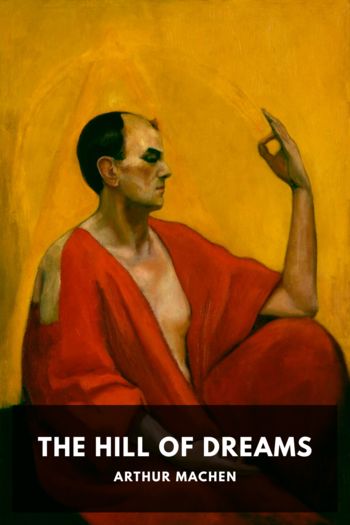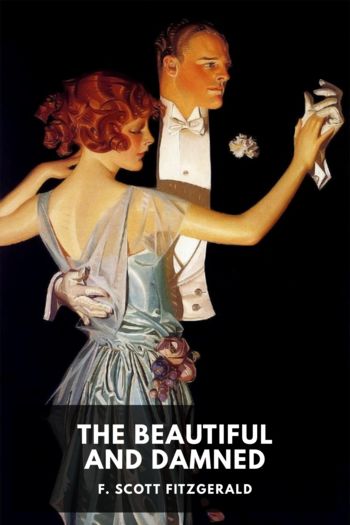The Hill of Dreams by Arthur Machen (best books for students to read .txt) 📕

- Author: Arthur Machen
Book online «The Hill of Dreams by Arthur Machen (best books for students to read .txt) 📕». Author Arthur Machen
There were stranger things written in the manuscript pages that Lucian cherished, sentences that burnt and glowed like “coals of fire which hath a most vehement flame.” There were phrases that stung and tingled as he wrote them, and sonorous words poured out in ecstasy and rapture, as in some of the old litanies. He hugged the thought that a great part of what he had invented was in the true sense of the word occult: page after page might have been read aloud to the uninitiated without betraying the inner meaning. He dreamed night and day over these symbols, he copied and recopied the manuscript nine times before he wrote it out fairly in a little book which he made himself of a skin of creamy vellum. In his mania for acquirements that should be entirely useless he had gained some skill in illumination, or limning as he preferred to call it, always choosing the obscurer word as the obscurer arts. First he set himself to the severe practice of the text; he spent many hours and days of toil in struggling to fashion the serried columns of black letter, writing and rewriting till he could shape the massive character with firm true hand. He cut his quills with the patience of a monk in the scriptorium, shaving and altering the nib, lightening and increasing the pressure and flexibility of the points, till the pen satisfied him, and gave a stroke both broad and even. Then he made experiments in inks, searching for some medium that would rival the glossy black letter of the old manuscripts; and not till he could produce a fair page of text did he turn to the more entrancing labour of the capitals and borders and ornaments. He mused long over the Lombardic letters, as glorious in their way as a cathedral, and trained his hand to execute the bold and flowing lines; and then there was the art of the border, blossoming in fretted splendor all about the page. His cousin, Miss Deacon, called it all a great waste of time, and his father thought he would have done much better in trying to improve his ordinary handwriting, which was both ugly and illegible. Indeed, there seemed but a poor demand for the limner’s art. He sent some specimens of his skill to an “artistic firm” in London; a verse of the “Maud,” curiously emblazoned, and a Latin hymn with the notes pricked on a red stave. The firm wrote civilly, telling him that his work, though good, was not what they wanted, and enclosing an illuminated text. “We have great demand for this sort of thing,” they concluded, “and if you care to attempt something in this style we should be pleased to look at it.” The said text was “Thou, God, seest me.” The letter was of a degraded form, bearing much the same relation to the true character as a “churchwarden gothic” building does to Canterbury Cathedral; the colours were varied. The initial was pale gold, the h pink, the o black, the u blue, and the first letter was somehow connected with a bird’s nest containing the young of the pigeon, who were waited on by the female bird.
“What a pretty text,” said Miss Deacon. “I should like to nail it up in my room. Why don’t you try to do something like that, Lucian? You might make something by it.”
“I sent them these,” said Lucian, “but they don’t like them much.”
“My dear boy! I should think not! Like them! What were you thinking of to draw





Comments (0)